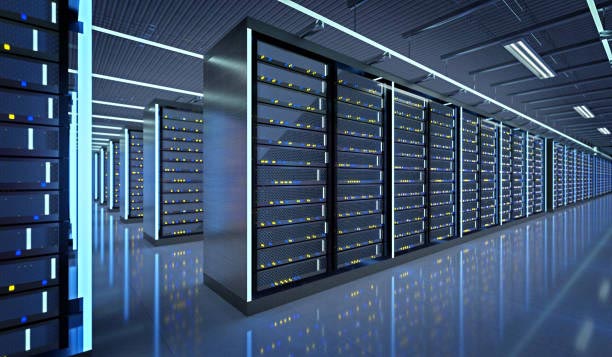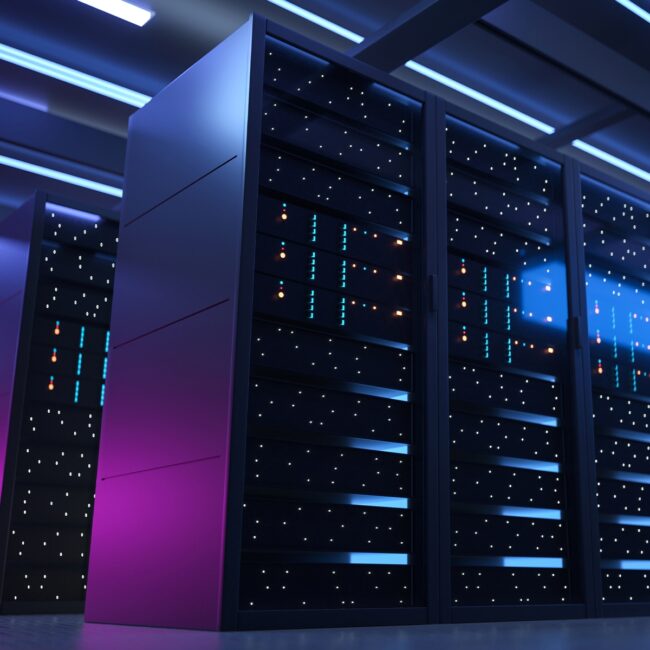What’s a center that stores data for users and companies? Data centers are specialized facilities that store and manage large volumes of digital data, supporting everything from cloud storage to business applications. Unlike traditional data centers, which can be vast and complex, “a micro data center” is a compact, self-contained unit designed to provide similar capabilities on a much smaller scale.
These centers are often used in remote locations, temporary sites, or to support edge computing, where data processing needs to happen close to the source. This article in dana cloud will explain the unique features, benefits, and potential uses of micro data centers, one of the best types of data centers. helping you understand when and why they’re essential in today’s fast-evolving tech landscape.
Definition of Micro Data Center
A micro data center is a compact, self-contained computing unit designed to handle data processing and storage near where data is generated, often in remote or decentralized areas. Unlike traditional data centers that require extensive physical space and infrastructure, micro data centers are modular, meaning they include everything needed for computing, networking, and storage within a single, manageable enclosure.
This makes them ideal for edge computing, where quick data processing and low latency are essential for real-time applications like IoT devices, smart cities, or autonomous vehicles.
Micro data centers are designed for efficiency and are often pre-assembled for quick deployment, making them flexible for various environments, such as factories, retail locations, or even outdoor settings. They’re also more cost-effective for small-scale operations, needing fewer resources and maintenance compared to larger data centers.
Because of these features, micro data centers allow companies to expand their digital reach without needing large-scale facilities, providing a versatile solution to modern data challenges in specific, localized settings.
Read more: What is a Colocation Data Center?
What are the components of a micro data center?
As micro data centers are modular and often times used for a single company, they have their own unique components that help them work in the most versatile manner possible:
- Small Server Racks: Micro data centers use space-efficient racks that can house servers and networking equipment in a small footprint, often integrating both for easy access and maintenance.
- Integrated Power Systems: They typically feature built-in power distribution units (PDUs) and uninterruptible power supplies (UPS), allowing for seamless power management without the need for separate installations.
- Onboard Cooling Solutions: Many micro data centers have embedded cooling systems, such as liquid cooling or advanced airflow designs, to maintain optimal temperatures in a compact environment.
- Modular Design: Their architecture allows for easy expansion or reconfiguration as needs change, supporting quick deployments in various settings.
- Edge Networking Equipment: Equipped with specialized networking gear optimized for low latency, enabling faster data processing and connectivity directly at the data source.
Read more: What is an enterprise data center?
How are micro data centers different from other types?
Micro data centers differ from other types in several vital ways. For instance, unlike enterprise data centers, which are large, centralized facilities requiring significant physical space and resources, micro data centers are compact, modular units designed for easy deployment in various locations. They excel in edge computing by processing data closer to its source, minimizing latency.
In contrast to cloud data centers, which rely on vast networks to serve multiple clients through shared resources, These data centers provide dedicated infrastructure for localized data processing.
They often feature integrated power and cooling systems, enabling rapid deployment and scalability without the extensive setup typical of larger facilities. These differences make micro data centers a practical solution for specific operational needs, particularly in remote or resource-constrained environments.
What are the main advantages of a micro data center?
We know that Micro data centers are ideal for businesses requiring localized data processing, such as retail chains, IoT applications, smart cities, and remote operations. But what makes these centers perfect for these businesses?
- Space Efficiency: Micro data centers occupy significantly less physical space than traditional data centers, making them suitable for environments with limited space.
- Rapid Deployment: Their modular design allows for quick installation and setup, enabling organizations to scale operations rapidly without lengthy construction timelines.
- Low Latency: By processing data closer to the source, micro data centers reduce latency, enhancing performance for applications requiring real-time data access.
- Cost-Effectiveness: With lower initial investment and operational costs, micro data centers provide an economical solution for smaller organizations or specific projects.
- Energy Efficiency: Integrated cooling and power solutions optimize energy consumption, contributing to lower operating costs and a reduced environmental footprint.
- Flexibility and Scalability: These data centers can be easily expanded or reconfigured to meet changing needs, allowing organizations to adapt quickly to market demands.
- Enhanced Security: By localizing data processing and minimizing data transit, micro data centers can improve data security and compliance with regulations.
Read more: What is an Edge Data Center?
How micro data centers work
Micro data centers operate as compact, self-contained units that integrate all necessary components, including servers, storage, networking equipment, and cooling systems. By placing these units close to data sources, they enable quick processing and reduce latency.
There’s also the matter of data security. Built-in encryption and access controls enhance this, ensuring that sensitive information remains protected. Unique features like remote management tools allow IT teams to monitor and manage operations from anywhere, providing real-time insights into performance and security.
Additionally, These data centers often include environmental monitoring systems to track temperature and humidity, ensuring optimal conditions for hardware. Their modular design allows for easy scalability, allowing businesses to expand capacity without major infrastructure changes.
This combination of localized processing, robust security, and adaptability makes micro data centers a practical choice for organizations looking to enhance their data management capabilities while optimizing resources.
Key Benefits of Micro Data Center Deployments
Here’s how a micro data center benefits the company or organization that chooses the facility:
- Localized Control: These data centers enable businesses to maintain greater control over their data by processing it closer to its source, ensuring compliance with regional regulations.
- Improved Reliability: With redundancy built into their design, micro data centers can provide consistent performance and uptime, reducing the risk of service interruptions.
- Scalable Solutions: They can be easily scaled up or down based on changing business needs, allowing companies to adjust resources dynamically without overcommitting.
- Reduced Network Costs: By minimizing data transit to central locations, organizations can lower bandwidth costs and improve overall network efficiency.
- Enhanced Disaster Recovery: Micro data centers facilitate rapid recovery and backup options, enabling quick restoration of services in the event of an outage.
- Tailored Deployment Options: They can be customized to meet specific requirements, making them versatile solutions for various industry applications.
Read more: What is Hyperscale data center?
FAQs
-
What industries benefit the most from micro data centers?
They are particularly beneficial for industries like retail, healthcare, telecommunications, and smart city applications.
-
Can micro data centers support cloud services?
Yes, micro data centers can support cloud services by acting as edge computing nodes, enabling faster data processing and reducing latency for cloud-based applications while maintaining localized data management.
-
How do micro data centers contribute to sustainability?
Micro data centers promote sustainability by reducing energy consumption through efficient cooling and power management, minimizing the environmental impact.



